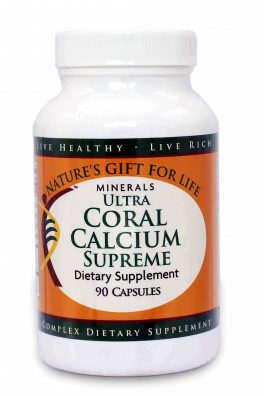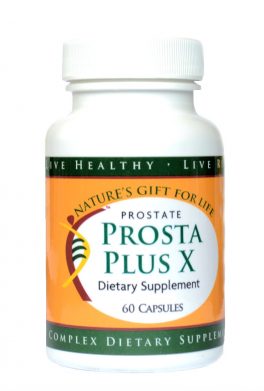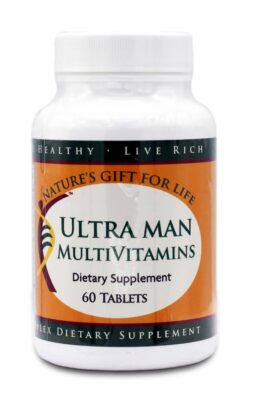Andropause
DOCTORS RECOMMENDED PRODUCTS
-
Andropause
NG4L Roots (Andropause)
0 out of 5(0)Benefits of this product for Andropause
- Correct erectile dysfunction by increasing the ability to have and sustain a good erection during sexual acts
- Significantly increase sexual desire without side effects or dependencies
>>>Read More
SKU: 1s17,450CFA
Andropause is natural condition which is considered the male version of menopause. Andropause is a normal part of aging and marks the beginning of the decrease in sexual ability or virility. It is the result of decreasing hormone levels in middle-aged men.
Andropause is also known as Adam’s Syndrome, by the acronym Androgen Deficiency in Aging Male. At about ages 40-50, starting even as early as their 30’s, men start experiencing a decline in levels testosterone (produced in the testes and the adrenal glands) and other hormones like human growth hormone (produced in the pituitary), androstenedione (produced in the adrenal glands). Some however suffer from a greater decline than others.
Aging 1 2 of testis and hypothalamic-pituitary axis leads to this decline and to andropause. Testosterone, the principal hormone involved in Andropause is vital for the man’s body. It is to males what estrogen is to females. Testosterone helps to build protein and is essential for normal sexual behavior and producing erections. It also affects many metabolic activities such as production of blood cells in the bone marrow, bone forma-tion, lipid and carbohydrate metabolism, liver function and prostate gland growth. Its decline causes a change in the ratio of estrogen to testosterone in the body. A point is reached when the levels of testosterone become so low that estrogen finally begins to dominate.
Aging 1 2 of testis and hypothalamic-pituitary axis leads to this decline and to andropause. Testosterone, the principal hormone involved in Andropause is vital for the man’s body. It is to males what estrogen is to females. Testosterone helps to build protein and is essential for normal sexual behavior and producing erections. It also affects many metabolic activities such as production of blood cells in the bone marrow, bone forma-tion, lipid and carbohydrate metabolism, liver function and prostate gland growth. Its decline causes a change in the ratio of estrogen to testosterone in the body. A point is reached when the levels of testosterone become so low that estrogen finally begins to dominate.
Symptoms: The extremity of symptoms is linked to the rate of decrease of testosterone production in the body. Although the symptoms are not typically as dramatic or obvious as female menopause, for some men the effect on overall well-being and quality of life can be equally as devastating. The symptoms of menopause andropause may include mood changes, increased anxiety, fatigue, lack of energy (decrease in strength and/ or endurance), and decreased agility and sex drive. Other sym-ptoms may include decreased muscle mass, depression, irritability, weight gain and increase in upper and central body fat, loss of self esteem, weak bones, back pain, difficulty in falling asleep, not sleeping well and
having a restless time during the last part of sleep before awakening, urinary changes, loss of physical fitness, lost height, back pain, decreased “enjoyment of life,” irritability, anger, and grumpiness, depression or withdrawal, erectile dysfunction, deterioration in sports and work performance, dry skin, falling asleep after dinner, joint aches and stiffness of the hands, premature aging, changes in hair growth and skin quality, hot flashes, decreased memory and/or concentration.
Since all this happens at a time of life when many men have more physical,
emotional and life challenges than in the earlier years of life, it is often difficult to realize that the changes occurring are related to more than just external conditions. During this part of life men begin to question their values, accomplishments and direction in life. Job horizons are narrowing, retirement looms, parents and friends are dying friends, and children are leaving home.
All this can compound how they feel and how they deal with the changes.
Unlike menopause, which generally occurs in women during their mid forties to mid-fifties, men’s “transition” may be much more gradual and expand over many decades. Attitude, physical and psychological stress, alcohol, injuries or surgery, medications, cardiovascular diseases, excess alcohol and snuff, diabetes mellitus, thyroid dysfunction, and drug consumption, obesity and infections can contribute to its onset. This decline in testosterone actually increases the risk of other health problems like heart disease and osteoporosis.
Healthy Things You Can Do
• Stop smoking–smoking adversely affects the entire body by increasing free radical damage. Men who smoke tend to have lower sperm count.
• Quit or drastically reduce intake of alcoholic beverages. Heavy drinking can lead to prostate problems and impaired erections by increasing levels of di-hydro-estosterone (DHT). DHT elevation, linked to testosterone decline and elevation of female hormones, is definitely undesirable for men.
• Limit or eliminate caffeine intake.
• Stop recreational drugs–the use of recreational drugs (e.g., marijuana, cocaine, hashish) may adversely affect hormone production.
• Avoid saturated fats and hydrogenated oils (e.g., margarine)–use olive oil, canola oil or flaxseed oil.
• Eat a well-balanced diet–the importance of a healthy diet cannot be overstated. To function properly, hormonal production requires proper vitamins and minerals. Nutritional deficiencies (especially in vitamin C, selenium, zinc, and folate) can impair hormone function.
• Eat organically-grown natural whole foods –focus on fresh vegetables, fruits,
whole grains, fish, poultry, legumes, nuts, and seeds. Eliminate processed
and refined foods (e.g., white flour), junk food, and sugar.
• Avoid exposure to harmful synthetic chemicals, smog and smoke.
• Eat pumpkin seeds–pumpkin seeds are naturally high in zinc and essential
fatty acids which are vital to healthy functioning of the male reproductive system.
• Reduce stress–learn healthy techniques for dealing with stressors. Emotional stress can interfere with hormone production.
• Lose weight if needed.
• Exercise regularly to increase metabolism and reduce excess body fat–lack of exercise and obesity can lead to deficiency in testosterone production.
Regular exercise is a vital component of male sexual health. It makes the body function more efficiently and raises strength and endurance, boosts our oxygen levels, increases the immune system, and makes us fight disease more effectively, energizes us, helps us relax, improves sex life, and gives us an overall feeling of health and well-being. Excess body fat from poor eating habits can be eliminated with a consistent program of activity.
• Discuss natural hormone replacement therapy with your physician.
• Take the best nutritional supplement and herbs you can to help your body deal with today’s pollutions and the lower nutrient content of foods.
Vitamins C, D, E and zinc, selenium, flaxseed, milk thistle, fermented soy,
and garlic are beneficial to men’s health.
• Increase your intake of zinc to renew sexual potency. Zinc, highly concentrated in semen, is the most important nutrient for male sexual function.
Eat zinc-containing foods (like liver, oysters, brewer’s yeast, nuts and seeds)
regularly and add zinc-rich spirulina to your superfood supplement list.
• Make an appointment to get your hormones tested.
• Drink 2-3 liters of clean water daily.
• Reduce fried foods, red meats and fatty dairy foods (full of hormonedisrupting chemicals) and sugar; all these foods deplete the adrenals, add to andropausal weight gain, and drain male energy.
• Take a fish oil supplement.
• Eat more cooked tomato, which contains lycopene, which markedly reduces prostate cancer risk.
• Every day, eat one serving of cruciferous vegetables such as kale, collard greens, mustard greens, broccoli, cabbage, turnips, cauliflower, and Brussels sprouts. These contain Indole-3-Carbinol, which increases the conversion of estradiol to “weaker” (2OHE) estrogen. Broccoli also contains quercetin, which is
beneficial for chronic prostatitis.
• Include lots of soybeans in your daily diet to improve hormone balance and to reduce the risk of prostate cancer and osteoporosis. Soybeans are a rich source of calcium and fiber. A high fiber diet can decrease total circulating estrogens in the body. Soy contains diosgenin which is a precursor to progesterone/testosterone,
which helps to redeposit calcium back on the bones. Soy also contains phytosterols, which relieve enlarged prostate.
• Include sesame seeds with your daily meals for they are a rich source of
calcium, proteins, magnesium and iron. Other sources of natural calcium
are fresh coconut water, carrots, almonds and oranges.
• Eat only unrefined crystalline sea salt and peas for natural iodine.
• Drink 2 cups of beet root, carrot, and wheat grass juice each day.
• Incorporate plant sources of calcium into your diet. Sesame seeds are a good source of natural calcium that is easily assimilated in the body. The black variety has a higher therapeutic value and lower oil content. You may soak them overnight and eat. Chew to a fine paste. Include sesame seeds with your daily meals. They are not only a rich source of calcium, but also proteins, magnesium and iron. Eat tahini (white sesame seed paste/ white sesame seed) with dried roasted coconut chutney with every meal. Fresh coconut water and carrot/ orange juice are good sources of calcium. Almonds are another rich source of calcium. They also contain trace mineral boron, which is essential for proper assimilation of calcium in the body. Soak 5-10 almonds overnight, skin and eat every morning.
• If you have an enlarged prostate, eat a quarter cup of raw pumpkin seeds
or sunflower seeds each day. Consume 2 to 4 oz., (50 to 100 gm) of soy foods regularly to decrease the risk of prostate cancer. In case of urinary incontinence take one to two tablespoons of sesame seeds with jaggery each day.
• Avoid intake of alcohol (especially beer), caffeine, and sugar.
• Walk 30 minutes daily.




